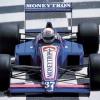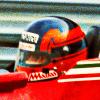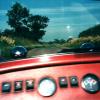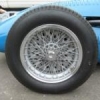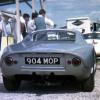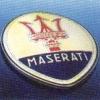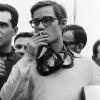I won't comment on Pironi but rather on the book you refer to. Regardless of how one views Didier Pironi, in my humble opinion the book is under-researched (to be polite) & hagiographic (to be blunt). When you have read a little about early 1980s Ferrari, it's hard not to be angry about all the fact-twisting and carefully, biased selection of third-rate sources (take a look at the book's footnotes). I know it might be shocking, but it's not because one finds that 'x' said 'y' that it is automatically true: who that 'x' was and what kind of access he/she had with the issue at question matters. It's something one learns in the first year of any undergraduate course in History, but then, it seems the author is known for publishing books denouncing the BBC for spreading 'cultural marxism'...
One big example: the book's argument that after Imola 82 everything was well and nice at Ferrari and that at Zolder Villeneuve was at peace with what had happened the previous race. I remember that one of the footnotes supporting such claim consisted of an interview with an unamed Ferrari workers at the gates of the factory or something of the sort published in the Italian press (so it appears in the book...).
Meanwhile you have testimonies (published before that book had appeared in Forghieri's bio or the Mehes book on Gilles, per instance) from Mauro Forghieri, Antonio Tomaini (Gilles' race enginner), Tommaso Carletti (Pironi's race engineer) stating the exact opposite. You have Alain Prost who in the Folley book (Prost vs Senna, 2009!) tells the story of Gilles calling him in the week after Imola angry as hell (and some interesting reflections on Pironi's lifestyle and disregard of danger). Furthermore, you can very easily find on youtube TV interviews from RAI with key Italian journalists (as well as Piccinini & Gilles' wife) telling you a very different story, not to say of a 'recent' number from AISA (https://www.aisastor.../monografia-99/) on the same vein.
I doubt, however, that the author actually reads and understands Italian (or anything other than English for that matter).
So far, the best balanced portraits that I have read on Pironi are Martine Camus' biography published only in French by Ed. du Palmier, which although very classic (on the 'and then they went to Monza' style) puts in several revealing testimonies; and Mark Hughes articles for Motorsport (which you can find on their archive). They tell the story of a man who although not as gifted and fast as Gilles' was not that far behind and was professionally determined to pull in all factors towards becoming a WDC, including shifting the intra-politics of Ferrari towards his own benefit. Gilles' death triggered an anti-Pironi reaction, which has since been tempered by the (in hindsight) assumption that he was simply being professional and trying to do what racers are supposed to do: win. One constant that always comes to the forefront, though, is that in his obsession with speed the man courted danger uncessarily & too often (see Prost's comments on the Folley book).


